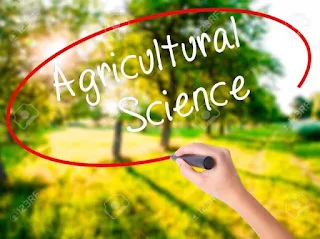SECOND TERM’S SCHEME OF WORK FOR SSS 1
Week 1: Anatomy and
Physiology
I. Meaning of anatomy and
physiology
II. Systems of the body:
– Digestive (monogastric
and ruminant)
– Reproductive
system
Week 2: Systems of the
Body of Farm Animals
Systems of the body:
– Circulatory system
– Respiratory
system
– Nervous system
Week 3: Reproduction in
Farm Animals
I. Oestrus cycle with
emphasis on heat period
II. Mating in farm
animals
III.Gestation
period
IV. Parturition
V. Lactation and colostrums
Week 4: Egg Formation in
Poultry
Processes of egg
formation in poultry
Week 5: Role of Hormones
in Reproduction
The role of hormones in
reproduction
Week 6: Livestock
Management
Livestock management
techniques:
– Good housing
– Feeding
Week 7: Livestock
Management
Livestock management
techniques:
– Hygiene
– Finishing
Week 8: Husbandry of
Pulses (Groundnut, Cowpea)
– Method of propagation
– Climatic and soil
requirements
– Pre-planting and
planting operations
– Manuring and fertilizer
requirements
– Harvesting, processing
and storage
Week 9: Husbandry of
Fibre Crops, e.g.,Cotton
– Method of propagation
– Climatic and soil
requirements
– Pre-planting and
planting operations
– Manuring and fertilizer
requirements
– Harvesting, processing
and storage of fibre
Week 10: Rock Formation
I. Definition of rocks
II. Rock types: Igneous,
Sedimentary and Metamorphic
III. Rock formation
processes/soil formation
Week 11: Practical
Identification of the
various rock types
Week 12 – 13: Revision/Examination
ALSO SEE: Agricultural Science: First Term's Scheme of Work for SSS 1 -- 3
ALSO SEE: Agricultural Science: First Term's Scheme of Work for SSS 1 -- 3
SECOND TERM’S SCHEME OF
WORK FOR SSS 2
Week 1: Range Management and Improvement
I. Definition of
rangeland
II. Importance of
rangeland
III. Characteristics of
rangeland
Week 2: Rangeland
Improvement
Methods of rangeland
improvement:
– Controlled
stocking
– Rotational
grazing
– Use Fertilizers
– Reseeding etc.
Week 3: Animal
Nutrition
I. Definition and meaning
of nutrition
II. Sources and functions
of nutrients, e.g., carbohydrates, data, minerals, vitamins, water and proteins
Week 4: Rations
I. Types of ration:
balanced ration etc.
II. Malnutrition
III. Effects of
malnutrition
Week 5: Environmental
Factors Affecting Agricultural Production
Climatic factors:
rainfall, temperature, light, and wind
Week 6: Biotic Factors
Affecting Agricultural Production
Biotic Factors: predator,
parasites, soil micro organisms, pests and disease organisms etc.
Week 7: Edaphic Factors
Affecting Agricultural Production
Edaphic Factors: Soil
types, soil PH, soil texture etc.
Week 8: Plant
Nutrients
Definition of micro and
macro nutrients, functions and deficiency symptoms
Week 9: Factors
Influencing Availability of Nutrients
Factors: Soil PH, excess
of other nutrients, leaching, crop removal, oxidation etc.
Week 10: Methods of
Replenishing Plant Nutrients in the Soil
Methods of replenishing
plant nutrients:
– Rotational
cropping
– Organic manuring
– Inorganic
manuring
– Fallowing
– Liming
– Cover cropping etc.
Week 11: Nutrients
Cycles
I. Nitrogen cycle
II. Carbon cycle
III. Water cycle
Week 12: Effects of
Farming Practices on the Soil
Farming practices and the
soil effects:
– Bush burning
– Over-grazing
– Clean clearing
– Stumping
– Fertilizer
application
– Inorganic manuring etc.
Week 13 – 14: Revision/Examination
SECOND TERM’S SCHEME OF
WORK FOR SSS 3
Week 1: Marketing of
Agricultural Produce
I. Meaning and importance
of marketing
II. Marketing agents:
a. Marketing boards
Week 2: Marketing of
Agricultural Produce II
I. Marketing agents:
b. Cooperative
societies
c. Middlemen–
wholesalers, retailers
d. Producers etc.
Week 3: Agricultural
Extension
I. Agricultural extension
as a teaching and learning process
II. Agricultural
extension programmes, e.g., ADP
III. Diffusion of new
ideas and techniques (innovations) to farmers
Week 4 – 5: Revision/Examination


As an agricultural science student, I'm continuously astounded by how much this field is changing with new research and technologies. Writing my dissertation was difficult, but with the help of a reputable dissertation service, I was able to streamline my efforts and focus on the most important areas. The contribution of agricultural research to establishing sustainable practices is extremely impressive!
ReplyDelete